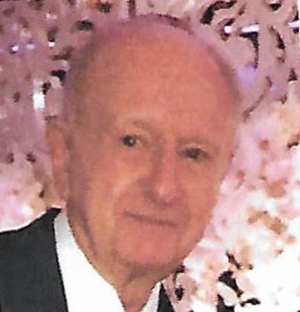
Part 5
(Continued from last week)
These proposals were delivered to the Reichskanzler as well as the Kaiser, who rejected them completely, fully realizing what the consequences for Germany would be. But the rejection of these ideas was not as a defense for the Jewish people.
Again, in October 1913, representatives of numerous groups met in Eisenach, and 11 groups agreed to form a German national group with the purpose of coordinating larger actions. Amongst various proposals for action by the group was also the need to promote the decisions, wishes and complaints of the anti-Semites and to disseminate them to governmental offices. The start of the war halted all activities of the group.
All optimism was torn apart or totally destroyed during the war. The anti-Semitism led to a polarization of the society. With it totally new groups were formed. On the one hand, political powers that during the war had worked in unison, came together carefully and formed the basis of the Weimar Republic. On the other hand, the general public removed itself from the state and formed an opposing position against the Reich—especially the anti-Semites, who always saw the fantasy of a threatening overthrow through their fanatical possession and their radicalism, which led to the undermining of the political order of the German empire.
Modern anti-Semitism was created in the last third of the 19th century, although at the same time Jews in Germany, with some exceptions, were able to develop their strength and abilities while many assimilated into their surroundings. The majority of the Jews considered themselves to belong to the German nation, namely to the culture and science of the land in which they lived. The beginning of the war in 1914 was also greeted by the Jews as a start of a new era of national solidarity. Here was the opportunity, through personal stake, to prove their belonging to the German people and to demonstrate their unconditional patriotism. The Kaiser’s statement, “I do not know any parties anymore, I know only Germans,” was accepted by the Jews as their inclusion in the Volk. Famous Jews such as Walther Rathenau and Nahum Goldmann pronounced a new beginning for the Jews after the war.
Unfortunately for the Jews, the enthusiasm of the early days did not last very long. In fact, the coming years showed an increasing sharpness in the laws instead of a disappearance of the animosity.
In times of extreme danger, the state is dependent on the solidarity and loyalty of everyone, with the condition that no minorities will be disadvantaged. This included the Jews, who just like others, volunteered to the front during WWI.
At the same time the hate organizations did not disappear. They did not believe that the “spirit of 1914” included the Jews. They respected the situation only to the extent it served their purpose. The “Reichshammerbund” (Imperial Hammer Union) founded in 1912, one of the most active anti-Semitic organizations, requested its members collect information on the participation of Jews in military campaigns and their losses, as well as their participation in charitable causes.
As the end of the war neared, the situation in Germany deteriorated in all aspects, thereby also bringing back the old isolation of the Jews. As always in the past, the Jews were blamed for all the losses and needs of the people. Newspapers took every opportunity to denounce the Jews, particularly German Jews now living outside of Germany who, in individual cases, had denounced the German Reich.
Anti-Semites issued pamphlets to officials denouncing the alleged favorable treatment the German Armies were giving to Jews in occupied Poland and Russia and warning against the consequential increase in immigration from these occupied lands. They warned against a “Heuschreckenschwarm” (Grasshopper swarm) that would cover the land with “Ostjuden.” This was an accusation that had been used in previous years against the eastern Jews. This was despite the fact that from August 1914 until the summer of 1915 hardly any Jews came into the country, and despite the fact that there were sufficient safeguards at the border to prevent unwanted immigration. They were not interested that the actual number of eastern Jews in Germany was rather small, nor that actually the army was bringing in eastern Jews, sometimes by force, to work in the war industry in Germany.
Jews were accused of holding large quantities of raw materials in order to be able to sell them later at much increased prices. The purpose of these accusations was to increase the hate against the Jews and thereby to eliminate any preferences toward that minority. It was not the “accused” Jews, but the anti-Semites who, even already in 1915, with their constant attacks against their own government’s alleged protection of the Jews, fueled the downfall of the government after the war.
Military officers, who had never been friendly toward the Jews resented their having the opportunity to become officers, which many did, at the expense of other, less qualified soldiers. Their anti-Semitism pushed them to combine their interest with the civilian anti-Semites and to accuse the Jews of dodging frontline service in favor of office jobs where they could enrich themselves through various means. Although that might have been the case in some individual instances, history disproves that Jewish soldiers generally dodged frontline service. It was my father, and I am sure thousands of other Jewish soldiers, who obtained their freedom from Hitler’s concentration camps because they were frontline soldiers during WWI. And regarding the accusation that Jewish soldiers tried to enrich themselves during the war, let me retell a story told to me by my father.
(To be continued next week)
By Norbert Strauss













